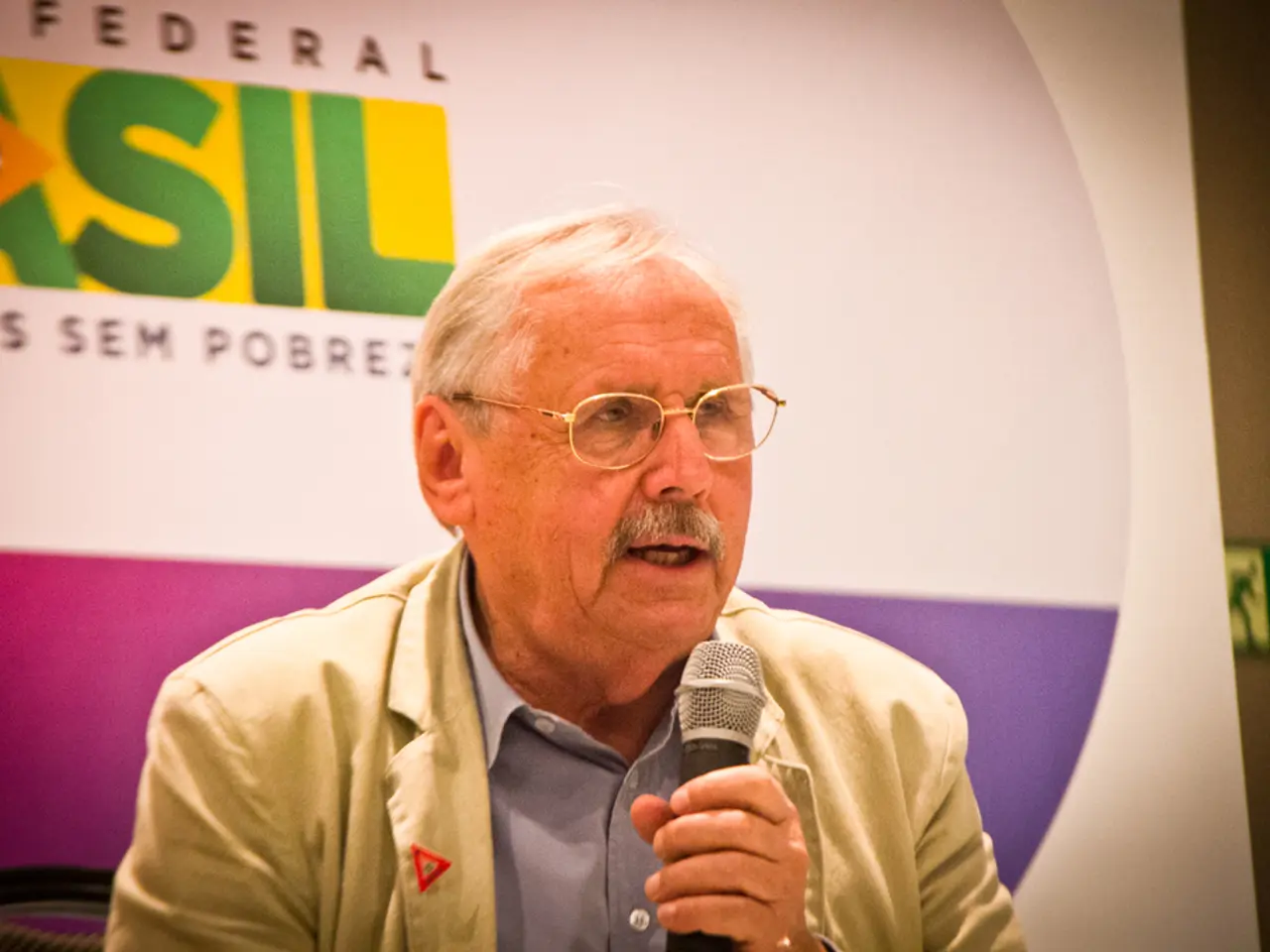Authoritarian Leader Nayib Bukele of El Salvador Labeled as Unrepentant 'Dictator'
Nayib Bukele, a 44-year-old politician and businessman, is the current president of El Salvador, a role he assumed in 2019. Born in San Salvador in 1981 to Palestinian heritage, Bukele began his political career in his early 30s, serving as mayor of a San Salvador suburb and then the capital itself.
Bukele rose to prominence by upending an unpopular, corruption-riddled two-party system that had been in power since El Salvador's civil war ended nearly three decades earlier. His presidency is marked by strong-handed policies, including a major crackdown on gangs.
In March 2022, Bukele launched his crackdown on crime, resulting in nearly 90,000 presumed gangsters being sent to a prison built under a state of emergency. However, this crackdown has been criticized for indiscriminate arrests, inhumane prison conditions, torture, and deaths in custody, according to rights groups.
Bukele's charisma and communication skills, unparalleled in Latin America, have earned him a large following. He is a social media whiz with 7.6 million followers on X, where he communicates directly with his fans. Bukele self-identifies as "dictator of El Salvador" and "world's coolest dictator" on social media, in an ironic nod to his detractors.
Bukele's crackdown on gangs has been credited with significantly reducing homicide rates. However, concerns about Bukele’s authoritarianism have arisen due to constitutional changes passed in July 2025 that abolished presidential term limits, enabling him to run for unlimited reelection and shortening the current presidential term.
These changes have led to worries about the erosion of democratic checks and balances in El Salvador. Bukele's government has been described as unapologetically dictatorial, with observers criticizing the concentration of power and military displays at his inaugurations that evoke authoritarian symbolism.
Bukele embraces the label of being a "dictator" in a context where democratic institutions appear weakened. He is married to Gabriela Rodriguez, a psychologist and ballet dancer with whom he has two children.
Bukele is also a cryptocurrency enthusiast and made El Salvador the first country to accept bitcoin as legal tender in 2021. Despite controversies, Bukele remains popular at home and abroad, with citizens of crime-ridden countries expressing a desire for a leader like him.
However, Bukele's rise to power has not been without controversy. Dozens of activists and journalists have gone into exile as Bukele has stepped up arrests of critics. In 2020, Trump's administration paid Bukele $6 million to keep 252 Venezuelans, accused without evidence of gang ties, in a notorious detention center. These individuals were repatriated to Venezuela after four months, reporting tales of torture and sexual abuse.
Despite these controversies, Bukele was reelected with an 85 percent majority in February 2024. Today, Bukele refers to himself as "Philosopher King." His allies subsequently won a majority in the Legislative Assembly, which replaced senior judges and the attorney general. The newly Bukele-aligned Supreme Court allowed him to seek reelection in 2024, despite a constitutional single-term limit which has now been definitively scrapped.
Bukele dropped out of law school and joined his father's business empire at the age of 18. His government includes several former schoolmates, and he maintains a small trusted circle that includes his brothers Karim, Yusef, and Ibrajim.
In summary, Bukele's rise from local mayor to national leader came with popular support, but recent legal and political maneuvers have intensified fears about his authoritarian tendencies and indefinite hold on power.
- Despite his charisma and popular support, Nayib Bukele's authoritarian policies and legal maneuvers have intensified concerns about the erosion of democratic checks and balances in El Salvador, as well as his indefinite hold on power.
- Beyond his cryptocurrency initiatives, Bukele's presidency has been marked by strong-handed policies, including a controversial crackdown on crime, international controversies, and billions of dollars in aid from foreign governments.
- Bukele's actions, such as abolishing presidential term limits, shortening the presidential term, and replacing judges and the attorney general with allies, have been criticized as an unapologetic concentration of power and a departure from democratic norms.






